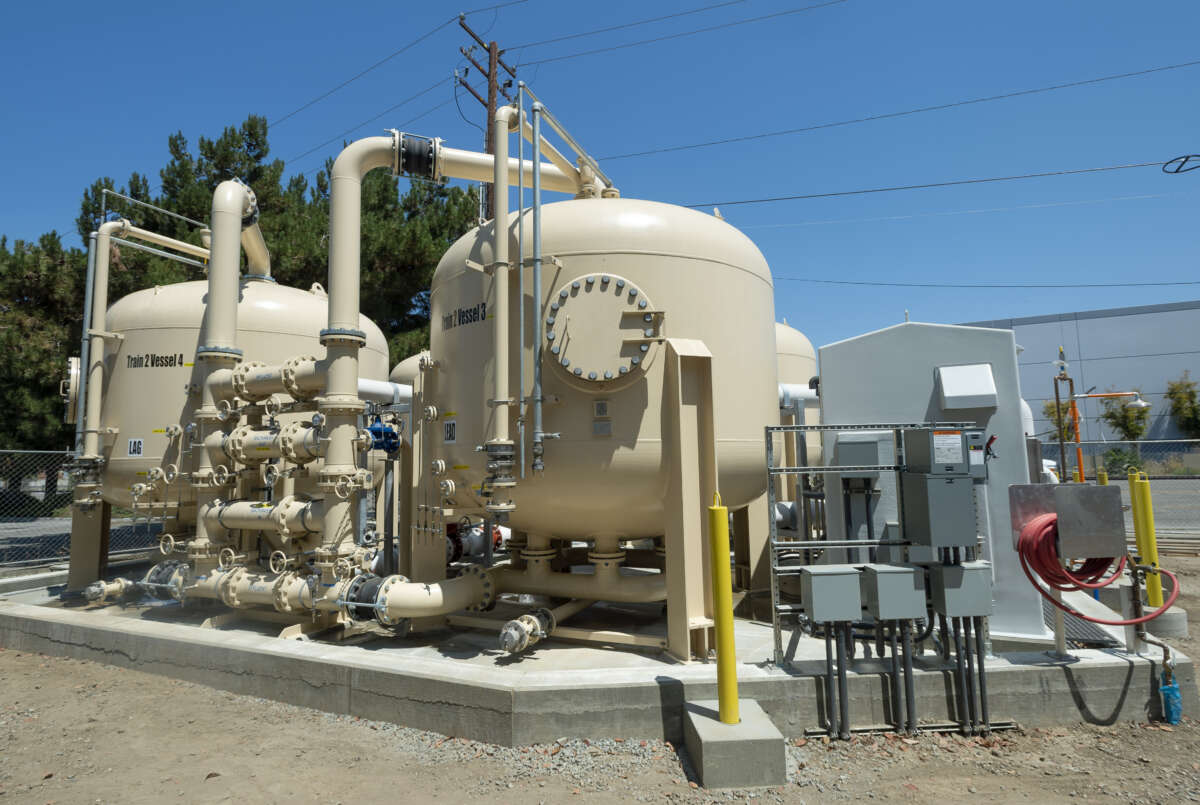U.S. regulators on Friday finalized a rule designating two widespread PFAS chemicals as hazardous substances, a step the agencies says will ensure polluters pay to clean up contamination and reduce Americans’ exposure to the toxic chemicals.
Under the federal Comprehensive Environmental Response, Compensation, and Liability Act (CERCLA), or Superfund law, the rule will require leaks and spills of these per- and polyfluoroalkyl substances (PFAS) to be immediately reported and will allow for investigation and cleanup of the chemicals.
The finalized rule “enables the agency to use one of its strongest enforcement tools to compel polluters to pay for or conduct investigations and cleanup, rather than taxpayers,” said the U.S. Environmental Protection Agency (EPA) in a press release. “Designation is especially important as delay in addressing contamination allows PFOA and PFOS more time to migrate in water and soil, worsening existing contamination.”
“This is great news for the many communities grappling with PFAS contamination — many of which are also low income and communities of color,” said Tracey Woodruff, an environmental health researcher at the University of California, San Francisco and a former EPA senior scientist.
The move comes days after the EPA announced the nation’s first legally enforceable drinking water limits for the same chemicals, perfluorooctanoic acid (PFOA) and perfluorooctanesulfonic acid (PFOS), along with four other PFAS.
So-called “forever chemicals,” which do not break down naturally, have been used for decades in consumer products ranging from nonstick pans to waterproof clothes and stain resistant carpet. Exposure to PFAS has been linked to cancers, liver and heart problems, and immune and developmental damage in children, according to the EPA. The chemicals are found in the blood of almost all Americans.
Making Polluters Pay
Environmental and health advocates celebrated the news, with Jonathan Kalmuss-Katz, an attorney at the nonprofit Earthjustice, saying the measure will make it “a lot harder for Chemours, Dow, and other polluters to pass the costs of their PFAS releases off on impacted communities and taxpayers.”
Some called for further government action to limit exposure to the pervasive chemicals.
“We need our state and national leaders to use every tool in the box to protect our families from exposure to PFAS,” said Stephanie Wein, a clean water and conservation advocate with a Pennsylvania research and policy center through the group Environment America. “That means phasing out their use, stopping their discharge, and holding the chemical industry accountable for the harms they have caused to our health and environment.”
Groups representing U.S. water and waste systems expressed concern leading up to the announcement that such operations, which do not make or use PFAS, could be dragged into expensive litigation as a result of the CERCLA designation if the government does not issue an exemption “passive receivers” of PFAS.
“Without Congressional action, a wave of lawsuits could potentially raise taxes and utility rates on millions of Americans,” Sen. Shelley Capito, a Republican from West Virginia, said at a U.S. Senate Committee on Environment and Public Works hearing last month. “This result flips the ‘polluter pays’ principle on its head, turning it into a ‘consumer pays’ model.”
Legislation recently introduced to the Senate proposes a “statutory shield” for water systems under CERCLA for PFAS.
But environmental advocates argue that such an exemption is unnecessary, saying it would eliminate incentives water utilities and others have to properly treat and contain contamination. They also worry an exemption for some sectors would create a slippery slope that would ultimately benefit polluters.
The EPA does not intend to pursue community water systems, municipal storm sewer systems, publicly owned landfills or airports, local fire departments, or farms where sewage sludge (biosolids) are applied to the land, said the agency in an enforcement discretion policy that it released today with the final rule.
The rule will soon be published in the Federal Register and will go into effect 60 days later, said the EPA.
Before Midnight: Last Chance to Have Your Gift Matched!
Before midnight tonight, all donations to Truthout will be matched dollar for dollar up to $12,000! Thanks to a generous supporter, your one-time gift today will be matched immediately. As well, your monthly donation will be matched for the whole first year, doubling your impact.
We have just a few hours left to raise $12,000 and receive the full match.
This matching gift comes at a critical time. As Trump attempts to silence dissenting voices and oppositional nonprofits, reader support is our best defense against the right-wing agenda.
Help Truthout confront Trump’s fascism in 2026, and have your donation matched now!
